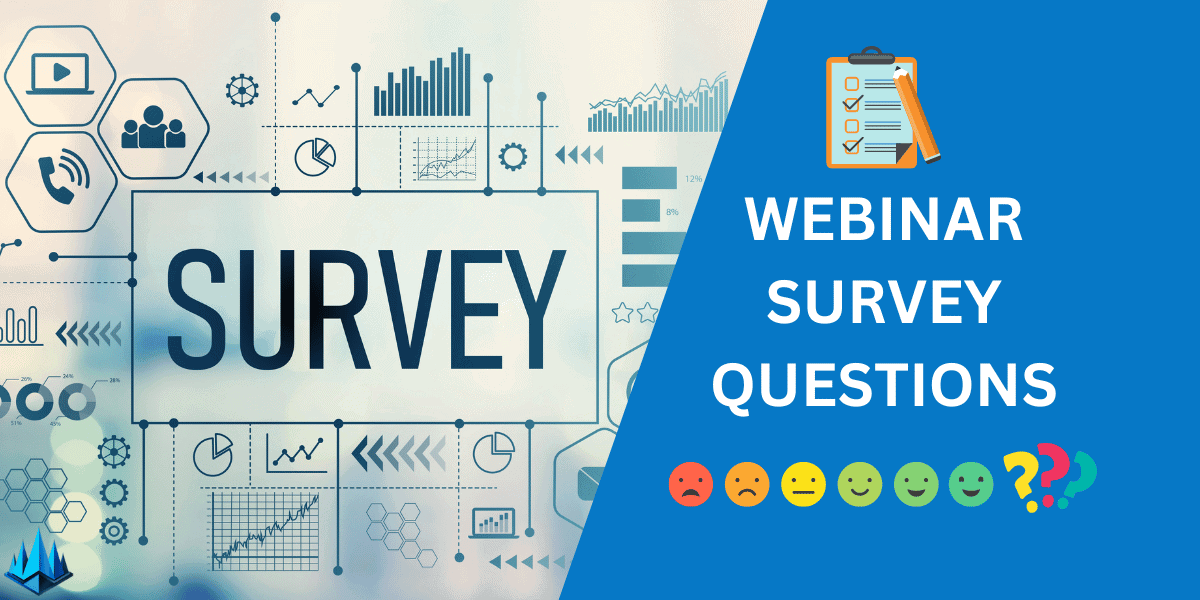As an ecommerce business owner, choosing the right bank can make a big difference in your ability to manage your finances and grow your business. With so many options available, it can be overwhelming to determine which bank is the best fit for your needs. In this article, we will explore the best banks for ecommerce businesses and what features to look for when choosing a bank.
Understanding ecommerce banking is crucial for finding the right bank for your business. Ecommerce banks offer features that are specifically designed to meet the needs of online businesses, such as online payment processing, fraud protection, and integration with popular ecommerce platforms. These banks also offer features that are important for any business, such as low fees, high-interest rates, and easy account management.
When looking for the best bank for your ecommerce business, it’s important to consider your specific needs and the features that are most important to you. Some banks may offer better rates or more comprehensive fraud protection, while others may have better integration with your ecommerce platform. By understanding what features are most important to you, you can choose the bank that best meets your needs and helps your business thrive.
Key Takeaways
- Ecommerce banking offers features that are specifically designed for online businesses, such as online payment processing and integration with ecommerce platforms.
- When choosing a bank for your ecommerce business, it’s important to consider your specific needs and the features that are most important to you.
- The best bank for your ecommerce business will depend on your unique needs and priorities, such as low fees, high interest rates, or comprehensive fraud protection.
Understanding Ecommerce Banking
When it comes to running an ecommerce business, having the right banking partner is crucial. Ecommerce businesses have unique banking needs that traditional brick-and-mortar businesses may not have. Understanding ecommerce banking can help ecommerce business owners choose the right bank and account for their needs.
Ecommerce banking refers to banking services that cater specifically to online businesses. These services may include features such as online payment processing, fraud detection, and international currency exchange. Ecommerce banking can help businesses manage their finances more efficiently and securely.
One of the main advantages of ecommerce banking is the ability to process online payments. Ecommerce businesses need a reliable payment processing system to accept payments from customers. Many ecommerce banks offer payment processing services that are integrated with popular ecommerce platforms like Shopify and WooCommerce.
Another important feature of ecommerce banking is fraud detection. Ecommerce businesses are at a higher risk of fraud than traditional businesses, so having a bank that can detect and prevent fraudulent transactions is essential. Many ecommerce banks offer advanced fraud detection tools that can help businesses protect themselves from fraud.
International currency exchange is another important feature of ecommerce banking. Ecommerce businesses that sell products to customers in different countries need a bank that can handle international currency exchange. Some ecommerce banks offer competitive exchange rates and low fees for international transactions.
In summary, ecommerce banking is a specialized type of banking that caters specifically to the needs of online businesses. Ecommerce banks offer features such as online payment processing, fraud detection, and international currency exchange that can help businesses manage their finances more efficiently and securely. Choosing the right ecommerce bank is essential for the success of any ecommerce business.
Key Features of Ecommerce Banks
When it comes to finding the best bank for your ecommerce business, there are certain key features that you should look for. Here are some of the most important features that you should consider:
-
Free or Low-Cost Accounts: Many ecommerce banks offer free or low-cost business checking accounts with no monthly fees or minimum balance requirements. This can be especially important for small ecommerce businesses that are just starting and need to keep their costs low.
-
Online Banking and AI Technology: Online banking and AI technology can help ecommerce businesses manage their finances more efficiently. With online banking, you can access your accounts and make transactions from anywhere with an internet connection. AI technology can help you automate your bookkeeping and accounting tasks, saving you time and money.
-
Payment Processing and Merchant Services: Many ecommerce banks offer payment processing and merchant services that can help you accept payments from customers and manage your transactions more easily. Some popular payment processing options include Stripe, PayPal, and Venmo.
-
Integration with Ecommerce Platforms: The best ecommerce banks should integrate seamlessly with popular ecommerce platforms like Amazon, Shopify, and Dropshipping. This can help you manage your inventory, track your sales, and streamline your operations.
-
Business Loans and Capital: Ecommerce businesses often require capital to grow and expand. The best ecommerce banks should offer business loans and other financing options to help you fund your growth.
-
Security and Fraud Protection: Security and fraud protection are critical for ecommerce businesses. The best ecommerce banks should offer advanced security features like two-factor authentication, encryption, and fraud detection.
-
Customer Support: Finally, the best ecommerce banks should offer excellent customer support to help you manage your accounts and resolve any issues that may arise. Look for banks that offer 24/7 customer support and multiple ways to contact them, such as phone, email, and live chat.
Overall, the key features of ecommerce banks should be geared towards helping ecommerce businesses manage their finances more efficiently, grow their businesses, and protect their assets. By choosing a bank that offers these key features, ecommerce businesses can position themselves for success in today’s competitive online marketplace.
Best Banks for Ecommerce Businesses
When it comes to running an ecommerce business, choosing the right bank is crucial. A good bank can help you manage your finances, process payments, and provide you with the tools you need to grow your business. After conducting extensive research, we have identified the best banks for ecommerce businesses in 2023.
Chase
Chase is one of the best banks for ecommerce businesses. They offer a range of full-service small business banking tools and premium checking accounts. Their online banking platform is easy to use and provides a range of features that are specifically designed for ecommerce businesses. They also offer a range of payment processing solutions, including Chase QuickAccept, which allows you to accept payments on the go.
Novo
Novo is an online-only bank that is specifically designed for small businesses. They offer a range of features that are perfect for ecommerce businesses, including free ACH transfers, mobile check deposits, and integrations with popular ecommerce platforms like Shopify. They also offer a debit card that comes with cashback rewards on popular business services like Google Ads and Amazon Web Services.
Bank of America
Bank of America is another great option for ecommerce businesses. They offer a range of business checking accounts that are specifically designed for small businesses. Their online banking platform is easy to use and provides a range of features that are perfect for ecommerce businesses, including mobile check deposits and payment processing solutions. They also offer a range of business credit cards that can help you manage your cash flow and earn rewards.
Axos
Axos is an online-only bank that offers a range of business banking solutions. They offer a range of business checking accounts that are specifically designed for small businesses, including ecommerce businesses. Their online banking platform is easy to use and provides a range of features that are perfect for ecommerce businesses, including mobile check deposits and payment processing solutions.
Bluevine
Bluevine is a fintech platform that is specifically designed for small businesses. They offer a range of business banking solutions, including interest-earning checking accounts and payment processing solutions. Their online banking platform is easy to use and provides a range of features that are perfect for ecommerce businesses, including mobile check deposits and integrations with popular ecommerce platforms like Shopify.
Mercury
Mercury is an online-only bank that is specifically designed for startups and small businesses. They offer a range of business banking solutions, including free ACH transfers, mobile check deposits, and integrations with popular ecommerce platforms like Shopify. They also offer a debit card that comes with cashback rewards on popular business services like Google Ads and Amazon Web Services.
NorthOne
NorthOne is an online-only bank that is specifically designed for small businesses. They offer a range of business banking solutions, including free ACH transfers, mobile check deposits, and integrations with popular ecommerce platforms like Shopify. They also offer a range of payment processing solutions that can help you manage your cash flow and grow your business.
TIAA
TIAA is a traditional bank that offers a range of business banking solutions, including business checking accounts that are specifically designed for small businesses. Their Small Business Checking account is a great option for small ecommerce businesses that want a long-term banking option. It has no monthly fees, ATM reimbursement, and convenient mobile check deposits.
Wells Fargo
Wells Fargo has a solid history of providing banking solutions for businesses, including ecommerce entrepreneurs. They offer a range of business banking solutions, including payment processing solutions, financing, and more. They also offer a range of business credit cards that can help you manage your cash flow and earn rewards.
Relay
Relay is an online-only bank that is specifically designed for small businesses. They offer a range of business banking solutions, including free ACH transfers, mobile check deposits, and integrations with popular ecommerce platforms like Shopify. They also offer a range of payment processing solutions that can help you manage your cash flow and grow your business.
Sutton Bank
Sutton Bank is a traditional bank that offers a range of business banking solutions, including business checking accounts that are specifically designed for small businesses. Their online banking platform is easy to use and provides a range of features that are perfect for ecommerce businesses, including mobile check deposits and payment processing solutions.
In conclusion, choosing the right bank is crucial for the success of your ecommerce business. We recommend considering the banks listed above as they offer a range of features that are specifically designed for ecommerce businesses.
Choosing the Right Ecommerce Bank
When it comes to choosing the right bank for your ecommerce business, there are several factors to consider. We understand that navigating the world of ecommerce banking can be overwhelming, but choosing the right bank can make all the difference in the success of your business. Here are some important factors to consider:
Cost and Fees
One of the most important factors to consider when choosing a bank for your ecommerce business is the cost and fees associated with the account. Some banks may charge monthly maintenance fees, ATM fees, or transaction fees. It’s important to carefully review the fee schedule of each bank you’re considering to ensure that you’re not paying more than you need to.
Minimum Deposit and Balance
Many banks require a minimum deposit or minimum balance to open an account. It’s important to consider your business’s financial situation and choose a bank that has a minimum deposit and balance requirement that you can comfortably meet.
Interest Rate
Interest rates on business savings accounts can vary widely from bank to bank. It’s important to consider the interest rate offered by each bank you’re considering to ensure that you’re earning the most interest possible on your account.
Transaction Limits
Some banks may have transaction limits on their business accounts. It’s important to consider your business’s transaction volume and choose a bank that has transaction limits that meet your needs.
Overdraft and Hidden Fees
It’s important to carefully review the fee schedule of each bank you’re considering to ensure that you’re not surprised by hidden fees. Some banks may also charge overdraft fees, so it’s important to choose a bank that has a clear overdraft policy.
Overall, choosing the right bank for your ecommerce business requires careful consideration of your business’s financial needs and goals. By taking the time to research and compare different banks, you can find the account that best meets your needs and helps your business grow.
How to Open an Ecommerce Bank Account
Opening a business bank account is an essential step for any ecommerce business. It provides a separate account for business transactions, helps with record-keeping, and allows for easier tax filing. Here are some steps to help you open an ecommerce bank account:
1. Determine the Type of Account You Need
There are different types of business bank accounts, such as checking accounts, savings accounts, and merchant accounts. A checking account is the most common type of business account and is used for day-to-day transactions. A savings account is used to save money and earn interest. A merchant account is used to accept credit card payments.
2. Choose a Bank
Research different banks to find one that meets your business needs. Consider factors such as fees, interest rates, and services offered. Some banks offer special accounts for small businesses or ecommerce businesses.
3. Gather Required Documents
Most banks require specific documents to open a business account. These may include a business license, articles of incorporation, and identification for the business owner(s). Check with the bank to see what documents are required.
4. Apply for the Account
Once you have chosen a bank and gathered the required documents, you can apply for the account. You may need to fill out an application and provide additional information about your business, such as your business plan and financial statements.
5. Fund the Account
Once your account is approved, you will need to fund it. This can be done by transferring money from another account or depositing cash or checks.
Opening an ecommerce bank account is an important step for any ecommerce business. It is important to choose a bank that meets your business needs and to gather all required documents before applying for an account.
Integrating Ecommerce Banks with Business Platforms
When it comes to running an ecommerce business, integrating your bank with your business platform is essential for seamless transactions and financial management. Fortunately, many banks offer integrations with popular ecommerce platforms, making it easy to manage your finances and sales in one place.
One popular ecommerce platform is Shopify. Shopify integrates with a variety of banks, including Stripe, PayPal, Amazon Pay, and Wise Business. With these integrations, you can easily accept payments from customers and manage your finances directly within Shopify.
Another platform that offers bank integrations is Xero. Xero integrates with a variety of banks, including Square, BlueVine, and Mercury. With these integrations, you can easily manage your finances and reconcile transactions within Xero.
If you use Zapier to automate your business workflows, you’ll be pleased to know that many banks offer Zapier integrations as well. For example, Wise Business, Square, and Venmo all offer Zapier integrations, making it easy to automate your financial workflows.
If you sell on Etsy or eBay, you can integrate your bank account with these platforms as well. Etsy offers integrations with Wise Business, while eBay offers integrations with PayPal.
Overall, integrating your ecommerce bank with your business platform is essential for efficient financial management. With so many banks offering integrations with popular ecommerce platforms, it’s easy to find a solution that works for your business.
Conclusion

In summary, choosing the right bank for your ecommerce business is a crucial decision that can impact your success in the long run. We recommend considering banks that offer digital banking services, low fees, and easy access to funds.
Based on our research, we found that Novo is the best overall digital-only bank for rapid access to funds and faster payments. Bank of America is a great option for ongoing rewards and other business support services. Square is the best choice for companies using Square that want banking with the same provider. Bluevine is the best online bank for international ecommerce and interest-earning checking, while Chase is a good option for those who need physical branches and a wide range of financial services.
It’s important to take into account your specific business needs and goals when choosing a bank. Consider factors such as transaction fees, foreign exchange rates, and the bank’s reputation and customer service. Don’t forget to read the fine print and compare different banks before making a decision.
Overall, we hope this guide has helped you narrow down your options and make an informed decision on the best bank for your ecommerce business.
Frequently Asked Questions

What are the top banks for small business ecommerce accounts?
According to our research, some of the top banks for small business ecommerce accounts include Novo, Bank of America, Square, BlueVine, Chase, Wise Business, PayPal, Payoneer, Revolut, TIAA, Capital One, Wells Fargo, Axos, and Skrill. Each of these banks offers unique features and benefits for ecommerce businesses, so it’s important to research and compare them to find the best fit for your specific needs.
Which banks offer the best online banking tools for ecommerce businesses?
Many banks offer online banking tools that are specifically designed for ecommerce businesses. Some of the best banks for online banking tools include Novo, Bank of America, Chase, and BlueVine. These banks offer features such as mobile banking apps, online bill pay, and the ability to quickly and easily transfer funds between accounts.
What are the advantages of using a business bank account for ecommerce transactions?
Using a business bank account for ecommerce transactions can offer several advantages. First, it can help you keep your personal and business finances separate, which can make it easier to manage your finances and file your taxes. Additionally, many business bank accounts offer features such as online banking tools and rewards programs that are specifically designed for businesses.
What fees should I expect when opening an ecommerce business bank account?
The fees associated with opening an ecommerce business bank account can vary depending on the bank and the specific account you choose. Some common fees to look out for include monthly maintenance fees, transaction fees, and ATM fees. It’s important to research and compare different accounts to find one that offers the features you need at a price that fits your budget.
Can I use a personal bank account for my ecommerce business or do I need a separate business account?
While it is possible to use a personal bank account for your ecommerce business, it is generally recommended that you open a separate business account. This can help you keep your personal and business finances separate, which can make it easier to manage your finances and file your taxes. Additionally, many banks offer features and benefits that are specifically designed for businesses, such as online banking tools and rewards programs.
What factors should I consider when choosing a bank for my ecommerce business?
When choosing a bank for your ecommerce business, there are several factors to consider. Some of the most important factors include the bank’s fees, online banking tools, rewards programs, and customer service. Additionally, it’s important to consider the bank’s reputation and track record, as well as any additional services or support they may offer for ecommerce businesses.











